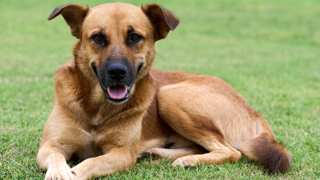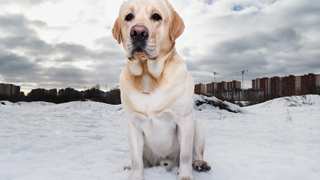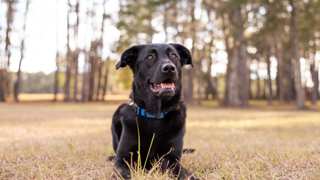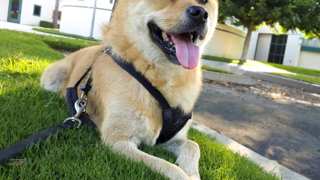There's no doubt these hybrids like to move--so the Golden Shepherd diet will need to include plenty of animal proteins for energy, vitamins and minerals for digestive and immune health, and omega fatty acids for coat and skin wellness. And like their Golden Retriever parents, these dogs are highly prone to obesity. All this means the best food for Golden Shepherds is premium dry kibble, because it has balanced portions of the above-listed ingredients that your GS needs to maintain its health in the long term.
This high-quality food, while more expensive, is very nutrient-dense--meaning the dog won't need to eat nearly as much of it to feel full. Premium food is much better for weight control than cheap, generic food, which has mostly empty "filler" ingredients that are not healthy for your GS, plus they'll have to eat a lot more of it to be satisfied--which means you'll soon have a fat Golden Shepherd waddling around!
Some recommended brands are Blue Buffalo, Royal Canin, and Taste of the Wild, all of which carry excellent lines of premium dry food.
The typical GS adult, depending on its age, size, and activity level, will need about 3½ cups of premium dry food per day, divided into two meals. Golden Shepherd puppy food portions, again depending on age, are only a bit less: three cups per day, divided into three meals per day (not two) until six months of age.
For more info on feeding a Golden Shepherd from puppyhood through maturity, see the following chart:
Dog AgeDog WeightFood TypeAmountFrequency2 Months10 lbsDry (Puppy formula)0.5 cups3x/day3 Months20 lbsDry0.75 cups3x/day6 Months40 lbsDry1 cup3x/day9 Months55 lbsDry* (Puppy/Adult)1.5 cups2x/day12 Months+70 lbsDry (Adult formula)1.75 cups2x/day*--Around this time, transition to adult food by first mixing in a bit of adult formula with the puppy formula. Over the course of a week, with each meal add a little more adult formula to the mixture, until the dog is eating it entirely.
Try if at all possible to stick to the above-listed portions. As previously noted, these dogs are prone to obesity, and will quickly become overweight if constantly overfed (and under-exercised). A fat Golden Shepherd will have major health problems and a shortened lifespan. You can help control your GS's weight by establishing consistent feeding and exercise schedules, by not feeding the dog table scraps, and by not leaving food in the dog's bowl all the time, thereby allowing it to eat anytime it wants.
If you're worried your Golden Shepherd is overweight, give the dog this simple test: run a hand along its side, and if you can't feel any ribs, it's diet time. Reduce the dog's daily food consumption by one-fourth, and add an extra walk, jog, bike ride, or play period to its daily exercise schedule.



